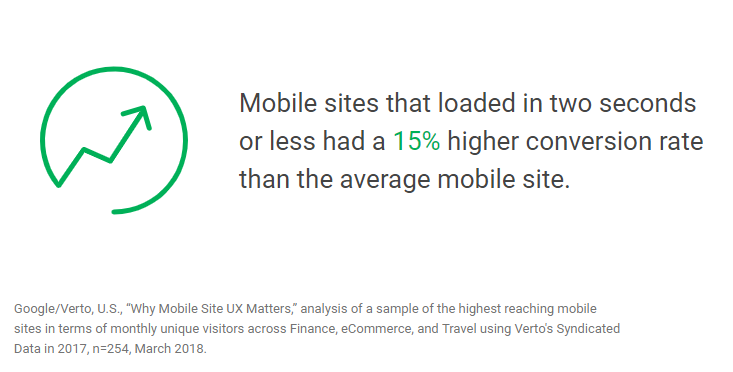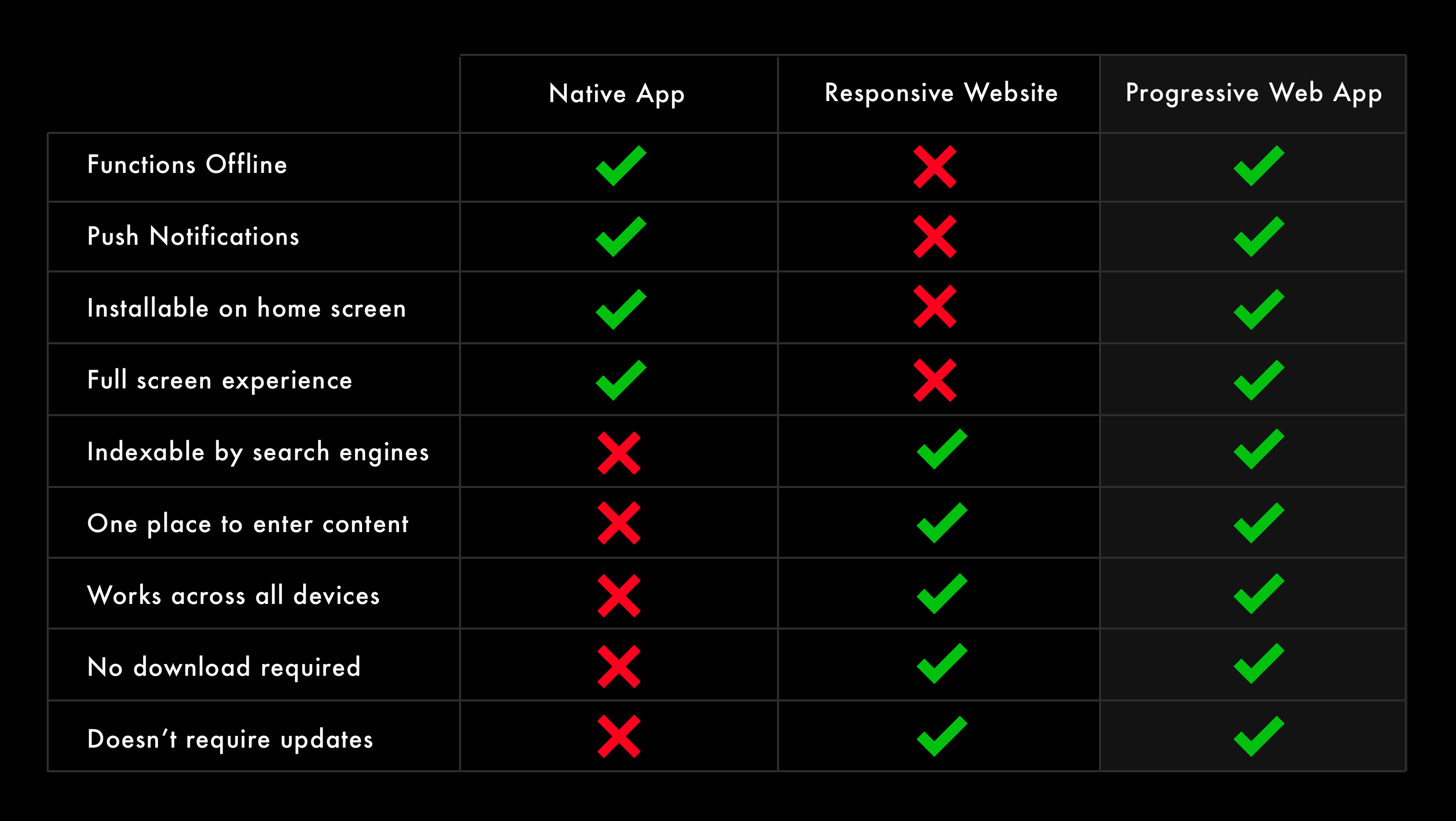The last couple of years have made a few things very clear. If you have a business online, you need to make it your business to be mobile-first.
Second, your mobile experience needs to be smooth and frictionless if you want it to translate into dollars. Lastly, smartphone users are super fickle and despite downloading over 113 billion apps in 2018, users still regularly use only about 9 apps per day.
So, you need to be on mobile. You need to be awesome on mobile. And people are probably not going to download and use your app regularly. What do you do then?
Build something that combines the slick, user-friendly interface of a mobile app without actually creating an app.
Yes, I’m talking about progressive web apps or PWAs.
In the simplest possible words, a PWA is a mobile-friendly website that behaves like an app but doesn’t need to be downloaded to be used. Users have the option to save a PWA to their phone and launch it just like an app, but it’s totally optional.

There are a whole host of perks that PWAs bring with them while overcoming the inherent disadvantages of building and maintaining a mobile site and a mobile app simultaneously. Let’s take a deeper dive to see how you can get the most out of PWAs.
Speed, thy name is PWA
This is undoubtedly one of the most exciting features of PWAs. Businesses can target users who might be on a slow data connection or even those who are offline with a PWA by using mobile development best practices like caching content ahead of time, compression, and more.
Why should you care about site speed? Because it directly impacts your SEO and your conversion rate.
In January 2018, Google formally announced what many SEO experts suspected for a while that mobile speed would be a key factor in organic search rankings for websites. With that came the mad rush to mobile optimize websites, improve page load times, improve navigation, and the works. In the case of PWAs, pages load instantly due to pre-caching and allow users a quick and simple user experience. A definite SEO win.
Research has shown over time that there is a correlation between site speed and conversion rates. A drop in site speed usually leads to a corresponding drop in conversion rates and vice versa.

Source: Think with Google

Source: One North
Websites can enjoy vastly improved conversion rates with the faster page load times that PWAs offer. Cosmetics giant Lancome switched to a PWA in 2017 and saw a significant improvement in both speed and conversion rates. They experienced an 84% drop in time until the page is interactive and a 17% growth in conversion rates.
Better engagement
Google dictates the fundamental requirements that a website needs to fulfill to qualify as a progressive web app. A smooth user experience including easy navigation, timely push notifications, cross-browser compatibility, responsive pages across all devices are a few important requirements that also lead to a growth in engagement.
PWAs mimic real mobile apps by allowing users to install them on their devices. With the app now on their mobile phones, the chances of interaction and engagement become exponentially higher, as experienced by Forbes magazine when they launched their own PWA. Users were notified every time new content was available via push notifications. With lightning-fast page load times, quick transitions and light page design, Forbes’ PWA managed to achieve the following:
- Increase scroll depth by 3x
- Improve sessions per user by 43%
- Get a 6x increase in readers completing articles
- Double their engagement rate which means a 100% increase in engagement
In the case of a publishing site like Forbes, high engagement equals high conversions, all thanks to their new PWA.
We know that website engagement metrics like session duration, click-through rates, and bounce rates have a direct impact on search rankings. As Larry Kim demonstrates here, time on site has a definite correlation with your organic search rankings. The higher the session duration, the higher your likely ranking on Google.

Source: Medium
You can say hello to page one on Google, all thanks to PWAs and their superior website engagement rates.
It’s all about the URLs
Progressive web apps truly embrace SEO best practices in every sense of the term. From clear and concise meta descriptions to adding Schema.org data for better indexing and parsing of site data by search bots; a search-optimized website is more likely to make the PWA cut than others.
PWAs don’t require different “mobile.site.com” types of URLs to offer a great experience on mobile devices. They’re automatically configured to provide a consistent experience, no matter what the device. Another bonus is that PWAs are necessarily HTTPS enabled. Not only does this bump up your site on organic search results but also reassures users about the security on your site leading to lower bounce rates, higher click rates, and likely higher conversion rates.
Each page comes with its own unique URL, making even deeply embedded pages easily crawlable and discoverable by search engines. Unique URLs for each page also makes sharing pages on social media and other sites much easier, not to mention more transparently trackable.
With pre-caching in place using service workers, all URLs on PWAs load even when your device is offline, empowering users who operate on older devices or poor network connections.
In closing
As users evolve and express their preferences more clearly, it is up to businesses to ensure that they pick up on these signals and adapt to stay relevant to their target audience. Today’s user is telling us that they expect a fast and frictionless journey on their mobile devices, without being forced to download an app for this superior user experience.
Time to pick up on those cues and invest in PWAs that combine ease of the mobile web with the speed and user-friendliness of a mobile app. Two for the price of one is what you get with PWAs. So when are you going to build yours?
Rohan Ayyar is Regional Marketing Manager at SEMrush. He can be found on Twitter @searchrook.
The post Progressive web apps (PWAs) for SEO: Benefits, stats, examples appeared first on Search Engine Watch.
from SEO – Search Engine Watch http://bit.ly/2PKc3B5
via IFTTT

No comments:
Post a Comment